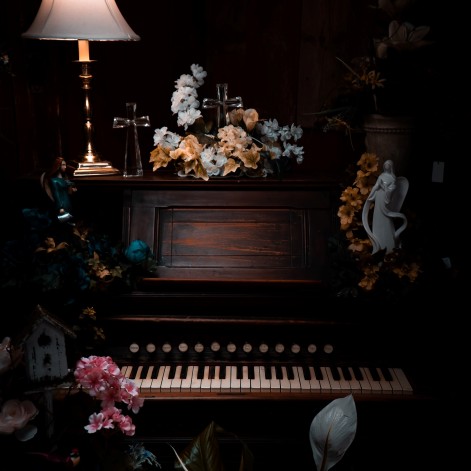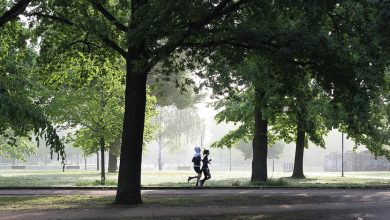
“Piano” is a short, nostalgic lyric written by famous English writer of the 20th Century, D.H.Lawrence. In this poem, he reminisces about those good old days of his childhood and remembers lovely times he spent with his mother during those days. It takes a simple incident of a woman playing the piano to jostle his memories and remind him of how his mother too used to play the piano when he was a child. The poem is an expression of Lawrence’s wistful longing for the happy times in the past and explores his sentiments as he takes a trip down the memory lane, guided by the sound of the piano.
Piano | Summary
Listening to a woman sing melodiously in the evening, the speaker is transported back to his childhood days. Memories keep flitting through his mind, finally settling on a particular memory of his mother singing to him while playing the piano. The song sung by her echoes within him as the lady sings to him in the present. As he looks back into the past, the music of the present moment mingles with the beautiful song of his childhood which his mother used to sing for him with him sitting under the piano she played, revelling in the happy sounds. It seems that his mother was an elegant and gentle lady, who loved him very much and always had a smile on her face as she sang for her little boy, the apple of her eye.
However hard he tries, the poet is not able to bring himself back to the present time. The grip of this beautiful memory is too strong. The subtle melody sung by the woman lures him to the past in spite of all his efforts to focus his attention on the present. He longs to go back to his childhood and enjoy the Sunday evenings at his home just like he did back then. He pines to be able to once again sing hymns with his mother, with the sound of the piano accompanying them, as they sat in their cosy parlour during those Sunday evenings as winter takes its course in the outside world. Reminiscing about that magical moment, emotions swell within his heart and he yearns to be able to relive that happy memory.
Being so moved by the powerful emotions stirred within him by his recollection of the past, he believes that all the efforts of the woman who sings in the present, are of no use. The pull of the memory is so strong that even the most passionate song played by the singer on her piano cannot bring him back to appreciate the present. The grown man within him is cast aside as the sweet remembrances of his childhood engulf him. Having said that, the speaker is aware of the reality and knows that however ardently he wishes to become a child again, it shall never happen. This thought fills his heart with immense sorrow and he weeps like a child in remembrance of the time that has flown by, never to return. Lost in his joyful memories, he might forget the truth for a while but the fact remains that being now a grown up man, he shall never become a child again and experience the bliss of childhood ever again. He must continue his life as a man, being content with the ability to slip back to such memories every now and then as he comes across something or someone that reminds him of that time, linking his past and present for a brief while.
Piano | Analysis
“Piano” is a short lyric written in three quatrains and follows the rhyme scheme aabbccddeeff. Lawrence has used a sentimental, melancholic tone in this poem so as to effectively convey his feelings of nostalgia and the longing to go back to his childhood years. The poem reads just like a song played on the piano, the symbol which finds its place in the title as well, and has a musical rhythm to it. The relationship between one’s past and present and the way in which the various stages of one’s life are intertwined with one another, linked through the fine thread of memories, forms the central theme of the piece.
Through this lyric, the poet seeks to give words to the conflict that resides within his heart between his memories of the past and the present world in which he currently is. The poem, just like the poet’s emotions, flits back and forth between the past and the present represented by the song of the woman and the song of his mother. He cherishes the happy memories of his mother and holds them tight within his heart. Even the slightest connection, such as the woman’s song, holds the power to take him back to the evenings he enjoyed with his mother as they sat in the comfort of their home, away from the chilly winds outside, the piano guiding them as they happily sang hymns. He is caught between his instinctive desire to go back in time to relive the happy moments spent with his mother as a child and his logical voice which keeps reminding him to focus and enjoy the present.
Ultimately, emotions prevail, and the poet, trying to come to terms with the fact that he is no longer a child and shall never be one ever again, laments the harsh reality of growing up.
Lawrence has employed many literary devices in this lyric.
Enjambment is used in all the three stanzas as the poet transitions between the lines.
Caesura occurs in the final stanza just after “piano appassionato”.
In the first and second stanza, the poet uses onomatopoeia in “tingling strings” and “tinkling piano” to describe the melodious sounds being played on the piano. In the second stanza, the heart has been personified as a weeping being.
“Vista of years” in the first stanza is a metaphor and “weep like a child” in the final stanza is a simile. The use of imagery throughout the lyric is appreciable. The mood and setting resonate perfectly with the feelings of nostalgia that the poet aims to evoke. Overall, this heartfelt lyric does not fail to strike a chord with the readers.



